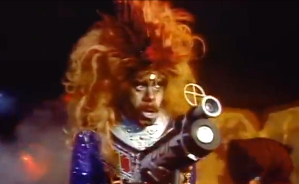Make Funny Jokes Funnier Series
Let’s face it, the fastest way to success in stand up comedy is to know how to make jokes funny or funnier!
Table of Contents
There are levels of being specific when writing comedy material. When writing jokes the more specific you are the more exacting the communication of your humorous thoughts. Thus if you want to know how to write funnier jokes, you must focus on specifics.
For instance, this joke:
“We decided it was time to hear the pitter-patter of little feet, so we bought an animal.” The word “animal” makes this a joke as we’re expecting them to want to have a baby. Yet, by being more specific this joke can be funnier by using “dog.”

When looking for specifics to make jokes funny remember the jokes are in the details.
“We decided it was time to hear the pitter-patter of little feet, so we bought Toto.”
As I went through the levels of specification, I believe this joke communicated the punchline better as it got more specific. Eventually to the detail of the dog’s name. It also added a sense of absurdity and exaggeration that they didn’t want children enough to find and purchase a famous dog which makes the joke even funnier.
Spend the time to find more detailed levels of specification to improve your comedy material.
Here are a few more examples:
“He got put away.”
“He’s in county jail.”
“He’s kept at Guantanamo Bay.”
Again, the exaggeration of the severity of the prison adds to the humor.
Specifics Give Credibility When Learning How to Write Funnier Jokes
When you’re specific, you give your audience a reference point to connect with the joke. This makes the joke funnier and more relatable.
For example, let’s say you want to write a joke about a famous biblical figure. If you’re specific and mention a particular event or detail about that person, and even quote a verse, the audience gets that you know the subject well enough to make fun of it.

For example: “I read John 12:34 and it says: A new commandment I give to you, that you love one another. Whereas the Kama Sutra is fully illustrated.”
The audience is able to connect with the joke as the setup and the punchline are both accurate.
When you use something specific from real life, the audience won’t have to mentally conjure up some general idea. Using a specific example can take them to a real memory.
Instead of just saying a “restaurant” in a joke, make it “Hooters.” Then they’ll remember two things.
Discover More Jokes
One of my adages I spout often in class is, “The jokes are in the details.” Most jokes don’t come from generalities, like relationships, they come from all the little specifics involved in relationships. I’ve found the more students dig into the details, the more jokes they find. And the easier it is for others to pitch them jokes and tags.
In a joke about getting into an argument with your spouse, you could say,
“We had a discussion.”
Or
“We had a debate.”
Or
“We agreed I was wrong.”
The more specific this gets the more honest it becomes. The truth may hurt, but that’s what makes it funny. Great jokes make us laugh and reveal something about our human flaws. (Though I don’t have any.)
Remember Tip 3 – Use K-Words to Enhance Punchlines
A key component in learning how to mqe jokes funny is to incorporate K-words. This tip is one form of being specific. Use K-Words to Improve Punchlines. By using specifics instead of generalities, and K-Words jokes can be made funnier.
If a joke ends with “arm chair,” with just a little investigation you can find something more specific like, “Barkalounger.”
Previously in this How to Make Funny Jokes Funnier Series of joke writing articles, you learned
- Short Setups and Punchlines are Best – Tip 1
- End Punchlines with the Reveal – Tip 2
- Use K-Words Make Better Punchlines – Tip 3
- Localize Comedy Routines – Tip 4
- Strong Punchlines are Negative – Tip 5
- Best to Put Puns in Joke Setups – Tip 6
- Original Jokes Killed by Comedy Cliches – Tip 7
In this joke writing article, Make Jokes Funny with Exciting Specifics – Tip 8, you’ve learned comedy material can be made funnier by digging into the details. These specifics have different levels, add credibility, lead to more jokes, and can punch up your punchlines.
Crafting jokes is part of the grunt work of being a stand-up comedian. Spend the time to get the exact wording and phrasing so you get the biggest comedy bang for your buck.
It’ll pay off when you’re on stage performing and every joke’s punchline and tags get huge laughs. You simply can’t have more fun with your clothes on.
In the next stand-up comedy writing article, Create Funnier Jokes About You – Tip 9, I’ll demonstrate how phrasing your joke and stand-up comedy routines about yourself make them more personal, therefore funnier.
Greg Dean’s Stand-Up Comedy Classes
Greg teaches his techniques in two classes. Level 1: How to Build a Stand Up Comedy Routine is the beginning class (also called the “101 class”) and the “Advanced Joke Writing & Performing at the Improv” (also known as the “201 class”).
Even though these classes are named a beginning and advanced, they are actually classes that stand up comedians of any number of years of experience can take. They are beginning and advanced in the Greg Dean system. If you’re interested in faster and better ways to create good jokes and you want to dive deeper on joke writing then you’ll want to take both of these classes. You’ll definitely get tons of skills that show you how to write funnier jokes!
Free How to Build a Stand-Up Comedy Routine Webinar

Are you ready to fast-track your stand-up comedy career? In this on-demand webinar, discover proven techniques and skills that can shave years off your journey to success! Learn how the pros build a compelling and hilarious stand-up routine with expert guidance. Don’t miss out on this chance to see how you can achieve your dreams faster.










